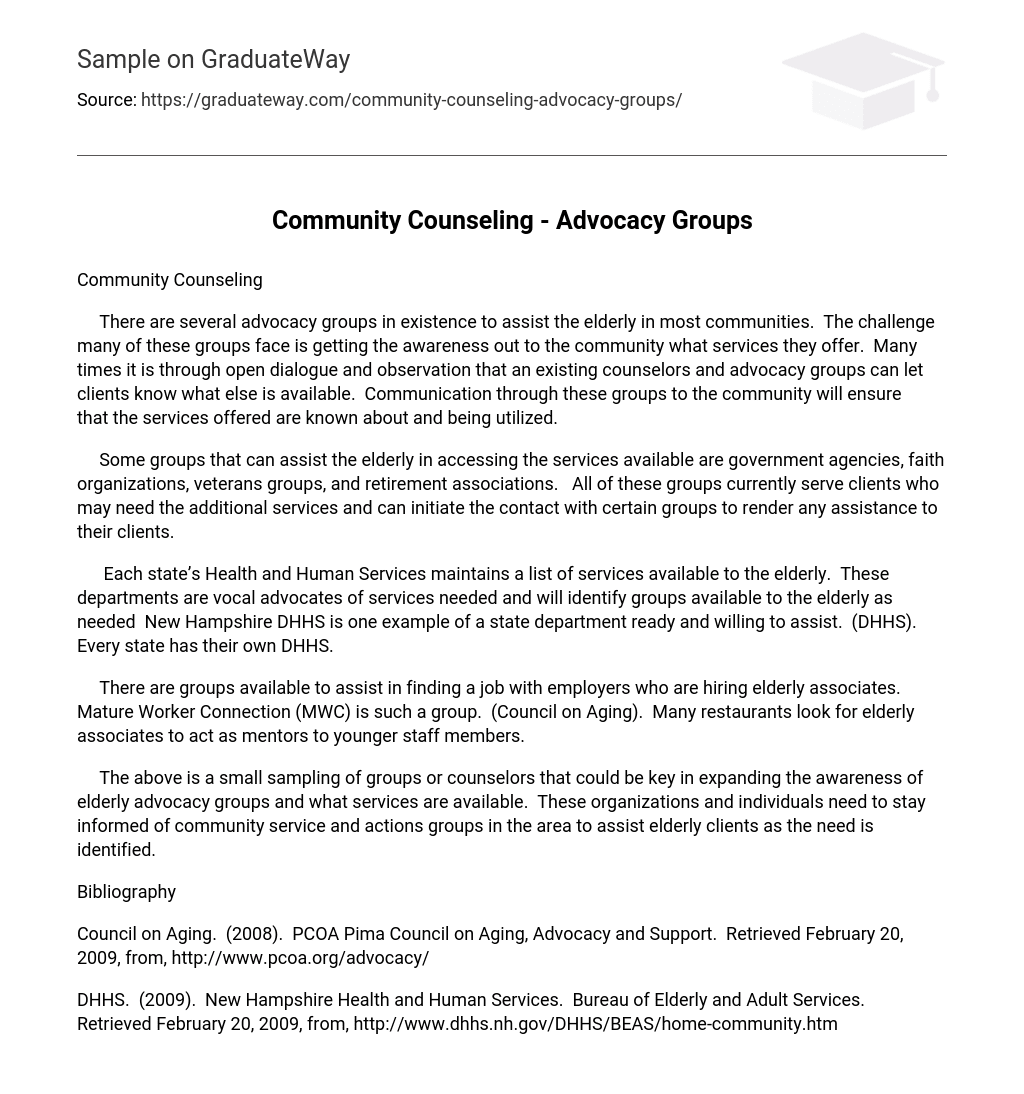There are several advocacy groups in most communities that exist to assist the elderly. However, many of these groups face the challenge of raising awareness about the services they offer. Often, existing counselors and advocacy groups can inform clients about additional available services through open dialogue and observation. Communication from these groups to the community is crucial to ensure that people know about and utilize the services offered.
There are several groups that can help the elderly access available services. These include government agencies, faith organizations, veterans groups, and retirement associations. All of these groups already serve clients who may need additional assistance and can initiate contact with other organizations to provide support.
Each state’s Health and Human Services department maintains a list of services available to the elderly. They are vocal advocates for the services needed and will identify available groups for the elderly as necessary. New Hampshire’s DHHS is an example of a state department that is ready and willing to assist (DHHS). Every state has its own DHHS.
There are groups available to assist in finding jobs for elderly associates with employers who are hiring. One such group is the Mature Worker Connection (MWC) through the Council on Aging. Many restaurants specifically seek out elderly associates to act as mentors for younger staff members.
The above is just a small sample of the groups or counselors that could play a crucial role in expanding awareness about elderly advocacy groups and the services they offer. It’s important for these organizations and individuals to stay informed about community service and action groups in their area so they can assist elderly clients as soon as their needs are identified.
Bibliography
- Council on Aging. (2008). PCOA Pima Council on Aging, Advocacy and Support. Retrieved February 20, 2009, from http://www.pcoa.org/advocacy/
- DHHS. (2009). New Hampshire Health and Human Services. Bureau of Elderly and Adult Services. Retrieved February 20, 2009, from http://www.dhhs.nh.gov/DHHS/BEAS/home-community.htm





